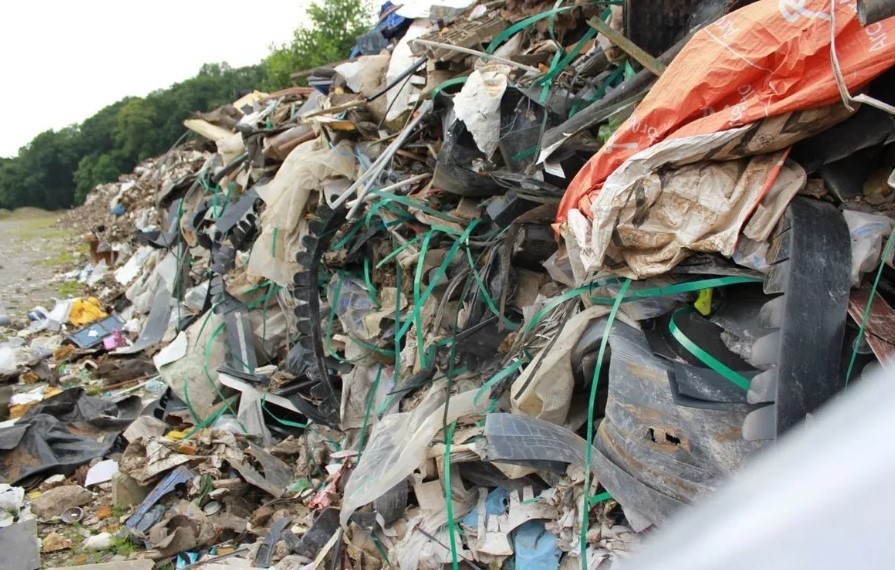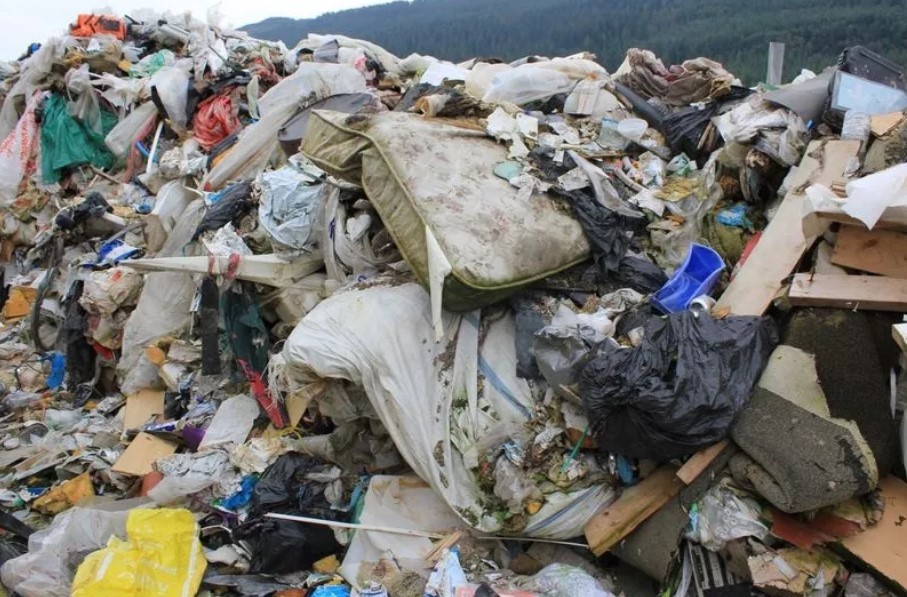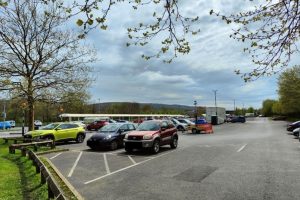VAST amounts of illegally dumped rubbish, including tonnes of hazardous hospital waste, remains in the ground in Neath Port Talbot more than two years after the offenders were sentenced in court.
Thousands of tonnes of waste was tipped at the former Rheola aluminium works, near Resolven, and at a farm near Skewen. The illegal operations were unearthed by environment watchdog Natural Resources Wales (NRW) during a four-year investigation which began in spring 2016.
NRW prosecuted three individuals – the man whose company dumped the rubbish, and the two landowners who were paid by him to accept it. Part of the punishment handed out by a judge at Swansea Crown Court in November 2021 was that the three men, plus the waste company run by one of them, were ordered to hand over available assets of some £428,000 under the Proceeds of Crime Act, although NRW said this was far less than they’d gained by their criminal activities.
The Local Democracy Reporting Service asked NRW if the assets had been handed over in full and whether the rubbish had been removed from the two sites. It said the money had been paid in full but that the rubbish had not been cleared.
“Removal of the waste is the legal responsibility of the landowners themselves – however due to both parties having insufficient funds to cover the substantial costs, removal has not been able to proceed,” said an NRW spokeswoman. “If NRW were to remove the waste ourselves, this would mean imposing significant costs on the taxpayer’s purse. We will continue to work with the landowners to progress any remediation works in the future.”
The court had heard that removing the rubbish from just the farm near Skewen – Pentwyn Farm – and disposing of it would cost around £800,000.
Both the farm and the Rheola works are privately-owned, although the latter has a new owner who is in no way connected to what went on.
While NRW spent years investigating and then successfully prosecuting a complex case, with assistance from South Wales Police, the question remains about how to remove illegally tipped rubbish once it’s in privately-owned ground. The costs of clearing the Rheola works are believed to be very considerable, although NRW hasn’t provided a figure.

There is also the question of damage that the waste might be doing to the environment. The Rheola site is close to the Neath Canal, with the River Neath around 300m beyond the canal.
The Local Democracy Reporting Service sent details of the case and photos of some of the rubbish to a Cardiff-based company, EMS Geotech, which specialises in environmental and ground investigation projects. Director Tom Walby said the photos looked like “the tip of an iceberg”, that the “damage could be tenfold”, and that clear-up costs would likely run into the millions of pounds. He added: “There could be a risk of harm to groundwater, watercourses and soil quality from the waste and a possibility of landfill gas or volatile vapours.”
Skewen councillor Helen Ceri Clarke said she was concerned that potentially hazardous waste had not been removed as a matter of urgency. “I feel that the Proceeds of Crime money needs to be used to deal with this as soon as possible,” she said. The Home Office said proceeds of crime were split between agencies, based broadly on their contribution to the recovery of the assets, and central Government.
Back in 2021, the court heard how NRW put the Rheola works site under covert surveillance and observed lorries depositing waste. Large excavators were seen burying the material in deep trenches, and then flattening the ground so that it became hidden.
It emerged the rubbish – found in large piles and also buried up to six metres below ground – included rotting household waste from Swansea and Carmarthenshire, shredded plastics, shredded oily vehicle parts, and around 46 tonnes of hospital waste such as syringes, blood test vials, incontinence pads, soiled dressings and bandages. There was also old furniture, scrapyard waste and fragments of fibreglass and asbestos. The smell of the waste was described as “horrendous” by attending NRW officers.
A search of Pentwyn Farm, near Skewen, then revealed shredded plastics and metals, plasterboards, Tarmac, builders’ waste, and oily car scrap. The court heard that thousands of tonnes of rubbish had been illegally dumped in total at both sites.
The three defendants – Dennis Brian Connor, Howard Geary Rees, and Eurid Huw Leyshon – all pleaded guilty to environmental offences.
Connor, of Morriston, who ran DBC Site Services 2005 Ltd, was sentenced to 20 months in prison suspended for 18 months, ordered to hand over assets of nearly £178,000, and told to complete 100 hours of unpaid work. DBC Site Services 2005 Ltd was fined £10,000 and told to pay assets of just over £65,000. Rees, of Resolven, was given a 16-month sentence suspended for 18 months, ordered to pay nearly £67,000, and also given 100 hours of unpaid work. Leyshon, of Skewen, was given a 16-month sentence suspended for 18 months, ordered to pay just over £108,000, and told to do 80 hours of unpaid work.
NRW said the three defendants and DBC Site Services 2005 benefited by nearly £5 million between them. This sum included payments received and costs avoided by not paying to dispose of the waste properly. Connor was said in court by his solicitor to be remorseful and devastated at the situation he found himself in, Rees was said by his solicitor to have been under extreme financial pressures at the time and that he had suffered a fall from grace, while Leyshon’s solicitor said the Leyshon family had helped out in Skewen following flooding and were very much involved in the community.
The Local Democracy Reporting Service contacted Mr Connor and Mr Leyshon to ask if they planned to help remove the illegal waste. Mr Connor did not wish to comment, while Mr Leyshon said that as far as he was concerned the matter had been dealt with. The Rheola works site was owned by Mr Rees’s company RM Rees Contractors Ltd but has since been sold on, according to Land Registry records, for £325,000 plus VAT.


















